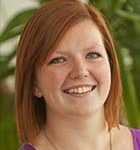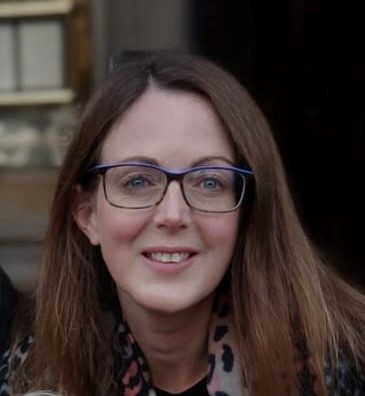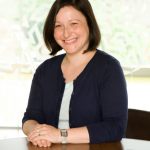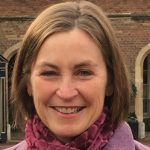Meet the Committee
The current Executive Committee for 2022 includes:
Chair: Steph Archer, University of Cambridge (2022 -2024)
 Steph is a University Lecturer and Practitioner Health Psychologist at the University of Cambridge. She joined the BPOS committee as Psychology Rep in 2013 and completed two terms; she is now the incoming Chair. Steph’s current work focuses on the design and implementation of multifactorial cancer risk prediction tools, and she is leading the applied work streams of the CRUK funded CanRisk project. Alongside this programme of work, Steph has interests in several other cancer related areas, including the uptake of chemoprevention, recovery following treatment, living with and beyond cancer, and end of life care. Steph is also passionate about partnering with patients and the public to design, deliver and disseminate high quality research.
Steph is a University Lecturer and Practitioner Health Psychologist at the University of Cambridge. She joined the BPOS committee as Psychology Rep in 2013 and completed two terms; she is now the incoming Chair. Steph’s current work focuses on the design and implementation of multifactorial cancer risk prediction tools, and she is leading the applied work streams of the CRUK funded CanRisk project. Alongside this programme of work, Steph has interests in several other cancer related areas, including the uptake of chemoprevention, recovery following treatment, living with and beyond cancer, and end of life care. Steph is also passionate about partnering with patients and the public to design, deliver and disseminate high quality research.
Treasurer: Sarah Gelcich, University of Leeds (2019 – 2023)

Sarah is a Research Fellow at the University of Leeds and joined the Committee in 2019. Sarah currently leads a Yorkshire Cancer Research funded project: CANVAS- CANcer surveillance And Support. This project aims to enhance the support for breast and colorectal (bowel) cancer survivors by developing and evaluating a new surveillance approach with online self-reporting of symptoms, provision of tailored advice and integration in risk-stratified care pathways. Prior to this, she was a part of the Quality of Life Metric Pilot Evaluation project. The project evaluated the implementation of a Quality of Life Metric across 5 Cancer Alliances in England to inform a national rollout. The metric aims to compare the quality of life post-treatment across different providers for service development.
Sarah has a background in applied linguistics, particularly in conversation analysis in medical consultations. She was awarded a Medical Humanities Sheffield scholarship and completed her PhD studies at the University of Sheffield. The study investigated communication of risk and disagreement within chronic type 2 diabetic medical consultations. Sarah is interested in communication and talk-in-interaction within medical settings, as well as patient reported outcomes for chronic conditions.
You can email Sarah on: treasurer@bpos.org
Secretary: Natasha Campling
 Natasha is Lecturer and Senior Research Fellow at the University of Southampton (School of Health Sciences) and joined the BPOS Committee in 2021. Natasha started her career as a cancer and palliative nurse at the Royal Marsden Hospital, London before becoming an academic researcher in 2000. She undertook her PhD at King’s College London (2006), funded by a doctoral training award from the EPSRC, and joined the University of Southampton in 2015. She has worked on an extensive range of studies, focused on cancer, palliative and end-of-life research; most recently ActMed (Accessing Medicines at end-of-life), a multi-stakeholder, mixed method evaluation of service provision funded by the Health Services and Delivery Research programme of the NIHR, for which she was a coinvestigator. She led a programme of work that examined the supply of medicines into community pharmacy.
Natasha is Lecturer and Senior Research Fellow at the University of Southampton (School of Health Sciences) and joined the BPOS Committee in 2021. Natasha started her career as a cancer and palliative nurse at the Royal Marsden Hospital, London before becoming an academic researcher in 2000. She undertook her PhD at King’s College London (2006), funded by a doctoral training award from the EPSRC, and joined the University of Southampton in 2015. She has worked on an extensive range of studies, focused on cancer, palliative and end-of-life research; most recently ActMed (Accessing Medicines at end-of-life), a multi-stakeholder, mixed method evaluation of service provision funded by the Health Services and Delivery Research programme of the NIHR, for which she was a coinvestigator. She led a programme of work that examined the supply of medicines into community pharmacy.
Currently, her research is focused on understanding experiences and processes at end-of-life, to improve support for patients and family caregivers during this time. In August 2020 she was appointed to the role of lecturer within the pre-registration nursing team at the University of Southampton, responsible for module leadership of palliative and end-of-life care in the BSc and MN curriculum.
You can e-mail Natasha on: secretary@bpos.org
Media representatives: Rachel Starkings and David Wright (2020-2023)
 Rachel is a Research Fellow within the Sussex Health Outcomes Research and Education in Cancer group (SHORE-C) at the Brighton and Sussex Medical School. She has been involved with both qualitative and quantitative projects, such as the development and validation of two new scales to capture the impact of cancer for patients and informal caregivers. Rachel has an interest in psychological pre-habilitation and rehabilitation, having previously worked on a project assessing the biological and psychological impacts of relaxation interventions for women with breast cancer. Rachel is also involved with the assessment of training interventions for healthcare professionals discussing concepts of risk with patients.
Rachel is a Research Fellow within the Sussex Health Outcomes Research and Education in Cancer group (SHORE-C) at the Brighton and Sussex Medical School. She has been involved with both qualitative and quantitative projects, such as the development and validation of two new scales to capture the impact of cancer for patients and informal caregivers. Rachel has an interest in psychological pre-habilitation and rehabilitation, having previously worked on a project assessing the biological and psychological impacts of relaxation interventions for women with breast cancer. Rachel is also involved with the assessment of training interventions for healthcare professionals discussing concepts of risk with patients.
Rachel completed her undergraduate degree at the Harriet L Wilkes Honors College of Florida Atlantic University, with a double major in Psychology and Political Science. She went on to complete her MSc in General Psychology at the University of Plymouth. Before becoming a Research Fellow, Rachel worked as a Senior Clinical Trial Coordinator at the Royal Marsden. She managed both the Head, Neck and Thyroid group as well as the Renal and Melanoma firm and was involved in numerous clinical trials, both academic and commercial in nature.

David Wright is a Senior Research Fellow at the Macmillan Survivorship Research Group (MSRG), University of Southampton. He has periodically worked in cancer survivorship research over the last 18 years. A social scientist by background, David first worked for the Group as a Research Fellow, managing the Macmillan Listening Study. This influential project was the first national research prioritisation exercise involving people affected by cancer and set the agenda for cancer survivorship research. Since then, he has worked as a freelance researcher for different clients including the University of Oxford, the Stroke Association, the NIHR Evaluation, Trials and Studies Coordinating Centre and the European Commission. In 2018, he returned to the MSRG, working on studies that seek to enhance the understanding of recovery and self-management of people living with and beyond cancer, and evaluating interventions designed to support self-management. David is also responsible for managing evaluations of workforce development and interventions designed to support personalised care. He also has extensive experience of patient and public involvement in research and values working with people affected by cancer as equal partners in the research process.
You can email Rachel and David on: website@bpos.org
Psychology Rep: Debbie Cavers, Usher Institute, University of Edinburgh (2021 – 2024)
 Debbie Cavers is interested in qualitative research exploring the lived experience of the illness journey, across the cancer care continuum and in the context of additional long term conditions, from cancer screening and early detection, through survivorship to end of life care. This work draws on psychological and sociology theory for a behavioural science approach to understanding health behaviours and informing interventions and service developments to promote optimal patient-centred care.
Debbie Cavers is interested in qualitative research exploring the lived experience of the illness journey, across the cancer care continuum and in the context of additional long term conditions, from cancer screening and early detection, through survivorship to end of life care. This work draws on psychological and sociology theory for a behavioural science approach to understanding health behaviours and informing interventions and service developments to promote optimal patient-centred care.
Debbie is currently working on a CSO funded study to pilot targeted lung health checks in the Scottish population. This involves the design and implementation of a pilot study evaluating the feasibility and acceptability of low dose CT scanning to detect lung cancer earlier and improve survival.
Nursing Rep: Lynn Calman and Jo Armes (2019 – 2022)

Lynn Calman is a Principal Research Fellow and Deputy Director of Macmillan Survivorship Research Group at the University of Southampton. The Macmillan funded MSRG research programme, is designed to inform the development of more efficient and effective services to support survivors and enhance their recovery. The MSRG programme has two themes – understanding recovery and self-management following primary treatment and developing and testing interventions to support self-management. The team are running large cohort studies of cancer survivors (CREW, HORIZONS) to understand health and wellbeing of cancer patients from diagnosis and across the life course and have developed online resources and decision aids such as RESTORE to support confidence to manage symptoms and problems. Lynn also leads her own programme of research to understand the needs of people living with treatable but not curable cancer. She has a long history of working closely with people affected by cancer as Research Partners in the development and conduct of research projects.
Lynn is an adult and mental health nurse. She undertook her PhD at the University of Edinburgh (2005) and joined MSRG in 2012 after completing an MRC funded post-doctoral fellowship in health services research and health of the public at the University of Manchester; to develop an intervention for the follow-up of lung cancer patients after primary treatment. She has a particular interest in living with and beyond lung cancer and is a member of the NCRI Lung Cancer Group.

Jo Armes is a Registered Nurse and is currently Professor of Cancer Care & the Lead for Digital Health at the University of Surrey. In 2000 she was awarded a CRUK Nursing Fellowship to undertake a PhD at King’s College London in which she developed and tested a behavioural intervention for cancer-related fatigue. Her research programme aims to enhance supportive care provided to patients in order to help optimise the benefits of treatment whilst living as well as possible with the effects of the disease and consequences of its treatment. She has considerable experience of developing complex interventions and evaluating their outcomes through mixed method research designs. Most recently she has been involved in developing and testing digital health interventions, including the EU-funded eSMART study.
Psychiatry Rep: to be advertised
Medical Oncology Rep: to be advertised
Consumer Rep: to be advertised
Open Position: to be advertised
Student Representative- Sara Matthews (2020 – 2022)
 Sara is a Therapeutic Radiographer and is currently studying for a MPhil/PhD at Oxford Brookes University. Her research will aim to explore the psychosocial experience and needs of oropharyngeal cancer patients and their primary informal caregivers following chemoradiotherapy.
Sara is a Therapeutic Radiographer and is currently studying for a MPhil/PhD at Oxford Brookes University. Her research will aim to explore the psychosocial experience and needs of oropharyngeal cancer patients and their primary informal caregivers following chemoradiotherapy.
Sara’s previous roles include those of Macmillan Information and Support Radiographer, Radiotherapy Practice Educator and Research Radiographer.
Open Position, Conference and Event Organiser: to be advertised
Palliative Care representative: Dr Jonathan Koffman, Hull York Medical School (2019-2023)

Jonathan Koffman is Professor in Palliative Care at the Hull York Medical School. He has a background in Social Policy, Sociology as Applied to Medicine from Royal Holloway and Bedford New College and undertook a PhD in Cancer Studies at King’s College London.
He originally worked for the NHS for an inner London health authority in public health making sense of the purchaser/provider split and health care commissioning. Along with a great deal of epidemiological work on mental illness, he also had the serendipitous opportunity to conduct an evaluation of a hospital-to-home service for men living with, and dying, from HIV/AIDS. Fascinated by the topic, his fate was then sealed and he moved over into academia and the emerging field of palliative care.
Jonathan has specific interests in disadvantaged dying with special emphasis on ethnicity and culture, socials determinants of end of life care, the development and evaluation of complex interventions, advance care planning and communications training for healthcare professionals. He recently completed an NIHR HTA funded cluster RCT of a hospital-based intervention to better identify and serve patients whose situations are clinically uncertain. More details about Jonathan can be found at Orchid ID: https://orcid.org/0000-0001-8513-5681 and @jonathankoffman